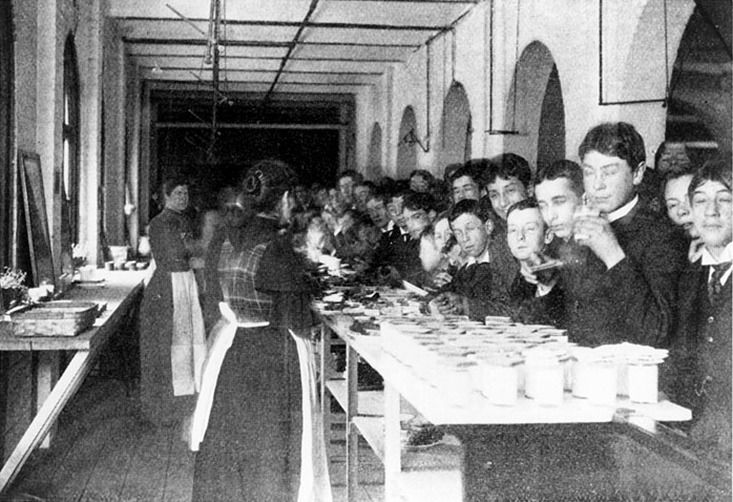Ellen Swallow Richards was not going to be intimidated by a room full of health experts and officials. Children were dying and their parents, Boston’s taxpayers, and city officials were to blame. The tiny, square-chinned woman thought nothing of climbing over boulders in petticoats, collecting thousands of water samples by horseback, or exploring mines on her honeymoon. So when she took the podium at the 1896 meeting of the American Public Health Association, she wasted no time in laying out her evidence.
More than 5,000 cases of illness could be attributed to the illegal conditions in Boston’s public schools, she said. Buildings lacked ventilation. Sewer pipes were still open. Toilets were filthy. Some 41 percent of the floors had never been washed. Only 27 of the city’s 168 schools had fire escapes that worked. Fully half of Boston’s schoolhouses were “deleterious to health.” The public and parents should be charged with “the murder of some 200 children per year,” Richards declared, their deaths entirely preventable from environmental hazards.
The strident, accusatory tone of Richards’ speech was remarkable, given how tactful she had been in the first two decades of her career. That tact had been a coping strategy, characteristic of a pragmatic feminism. Richards had been the first woman admitted to the Massachusetts Institute of Technology and the university’s first woman instructor. To blend in, she made a conscious effort to appear as unthreatening and feminine as she possibly could to her male colleagues. She even mended their clothes when they asked.










Comments are closed.